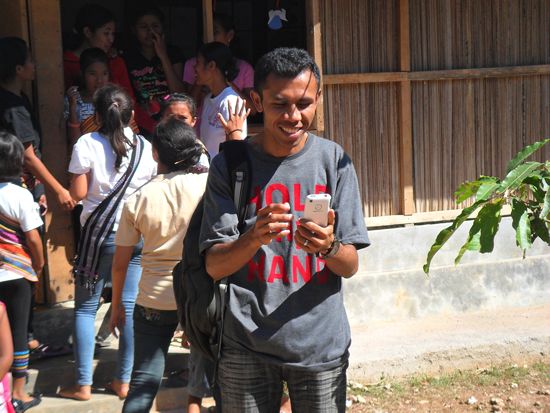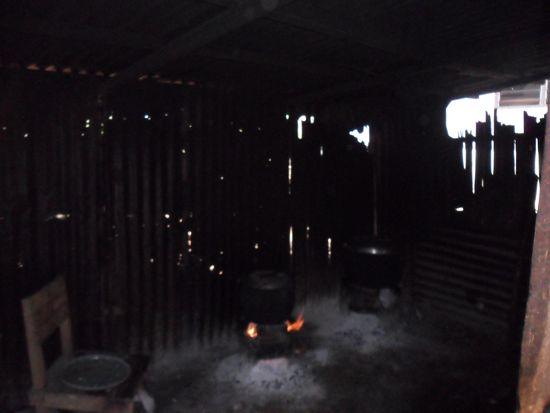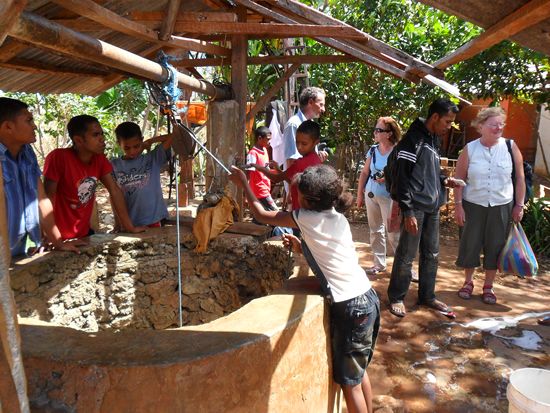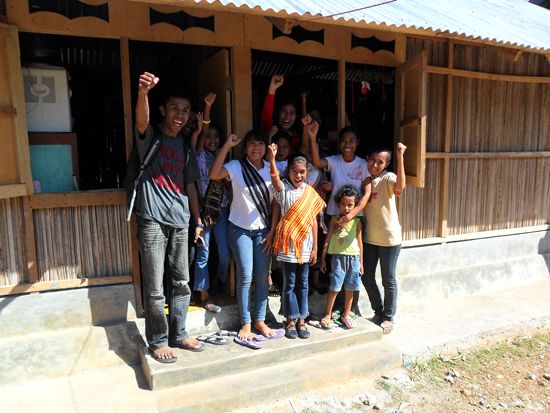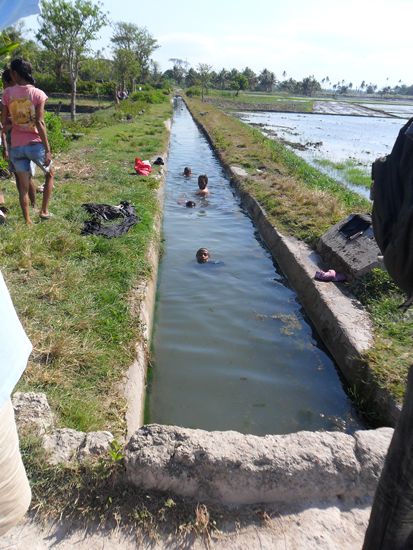Visiting the Orphanage

|
Our visit to
Kupang's largest orphanage was by invitation of Alfredo whom we met at what has
become our local bar and who is the son of the couple who founded the
orphanage, initially with just 3 children.
It now looks after 92 children ranging in age from a few months to 20 year olds. The babies are looked after at home by Alfredo's mother and they join the others when they are 2 or 3 years depending on whether other babies arrive. The orphanage is housed in a ramshackle collection of buildings on the edge of town. They have a large hall where everything except eating, cooking and sleeping takes place, there are plenty of musical instruments which many of the children learn to play. There are: 2 dormitories where the children sleep 3 to a bunk or on matresses on the floor which are stacked up during the day, the bunk beds have to be pushed together as there is no space for anything else; a kitchen, a dining area and little else. The children danced and sang for us wonderfully and we to them ...Old McDonald's farm etc....less wonderfully.
The kitchen was in a tin shed, all the children are taught to cook in there over roaring wood fires.
Water is hauled from 32 metres down in the well, there is no pump and this is their only water source, it all has to be boiled for drinking. Whilst we were there the boys were taking turns to haul up the water for some of the girls who were doing the laundry in several old large plastic containers, it was all very co-operative.
This is grand in the dry season but in the wet season when the area is ankle deep in water, washing and drying the laundry is quite a different task. Apart from having to buy rice occasionally the orphanage is almost self sufficient with its food supplies. A small plot is rented where the youngsters grow most of their vegetables and rear chickens and pigs which they eat but also sell at market. They have their own rice padis but these are a long drive away. The children work hard, they work the land, look after the animals, cook, clean and look after each other as well as getting a full education. The home is remarkably good at developing the children, the main thrust is to give them life skills and to educate them to their maximum potential so that they are best prepared to make their way in the world. They are supported until they can do that and since it started 20 children have made it through to University. A beautiful 20 year old spoke to us in good English of her plans to become a teacher. When these more able young people start to make their way professionally the expectation is that they will 'bless' the orphanage with financial and other support. Alfredo managed to get a piece of land from Government and has built a small school there. Some of the younger children are ferried 3 at a time on Alfredo's moped to the school which is some miles away. The older children attend state schools but schooling is not free here so it all has to be paid for. The family, and Alfredo in particular, spend much of their time identifying funding opportunities and somehow seem to manage.
We also visited the rice padis where the home grows most of the rice they need with the work of the older children. 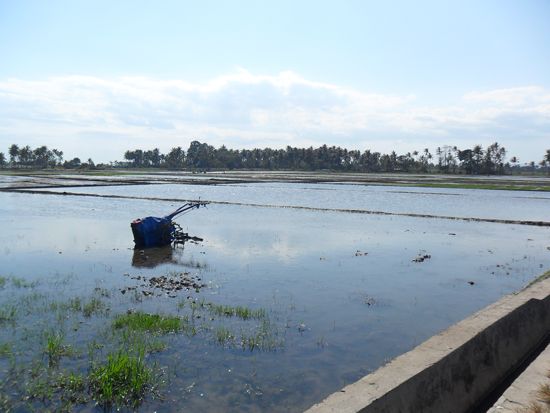 It was bath time for some of the locals!
The padis are a long way from the orphanage so the children stay at the families' home when they are at work there.
Many of these children have lost their parents during the floods in the wet seasons, this place gives them the ability to carry on. The children all seem decently fed, happy and well cared for. It really seems to work for them because they appear to be calm and confident young people. 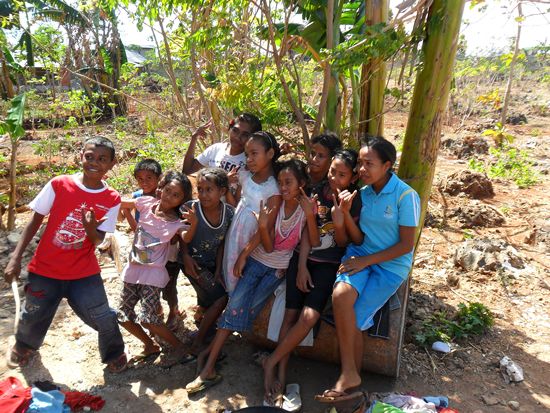 This was a very humbling experience and a powerful reminder of how lucky we are. These children and their wonderful carers are making the most of the crumbs that we leave for them and seem incredibly happy with their lot.
|
